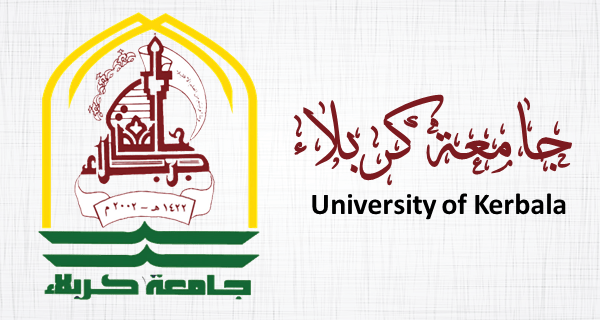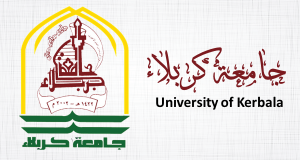Lecture assistant / Hutham Mohammed Ali Al Hashimi/ College of tourism
Abstract
Community participation is a fundamental concept that involves enhancing the involvement of individuals and communities in decision-making and policy formulation. Consultative participation, a form of indirect involvement, fosters an interactive and participatory process that contributes to community organization, democracy, and local-level engagement. Strengthening communities and their institutions is pivotal in achieving a balance between rights and responsibilities. A direct correlation exists between participation and community awareness – higher awareness leads to increased engagement. This elevation is not solely quantitative but encompasses diversified participation across various domains. International attention has been directed towards public participation, supported by declarations and agreements that promote sustainable development encompassing poverty eradication, socioeconomic empowerment, and equality promotion. This article evaluates participation levels and their applications in Iraq, along with the frameworks, mechanisms, and their impact on community sustainability.
Introduction
The post-2003 conditions in Iraq have had multifaceted effects spanning communities, individuals, and government service providers. Social cohesion weakened, infrastructure issues arose, and changes in behaviours impacted society. There was an emergence of poor job opportunities and increased poverty among individuals. Government service providers faced challenges due to infrastructure damage and resource scarcity. These three levels of impact directly and indirectly influenced social, economic, and developmental processes. The international spotlight is now on augmenting consultative community participation to enhance societal capacities and promote sustainable development. Iraq has implemented mechanisms, backed by international support, to foster consultative participation. This article delves into these mechanisms, their assessment, and their impact.
Methodology
Legal Framework for Community and Consultative Participation
The concept of participation in public affairs and consultation principles have been enshrined in various international instruments. Article 25 of the International Covenant on Civil and Political Rights emphasizes the broad concept of public affairs, encompassing legislative, executive, and administrative domains. Constitutions and national laws should stipulate the means for exercising the right to participate. International reports and guidelines, like the United Nations High Commissioner for Human Rights report in 2015, stress the importance of participatory mechanisms within legal boundaries. Nationally, countries exhibit varying levels of legal frameworks supporting participation. Colombia, Morocco, Kenya, and Romania have demonstrated commitment through their constitutions. In Iraq, Article 20 of the constitution guarantees citizens’ participation in public affairs and political rights.
Levels of Community Engagement
Participation can be classified into three levels:
1. Transparency and public information sharing by governments.
2. Consultation involving planning and needs identification.
3. Voluntary community involvement in resources like volunteer work, initiatives, and financial contributions.
4. Empowering communities to make decisions.
Methods and Techniques to Enhance Participation in Iraq
Efforts to enhance participation include:
1.Community Police Forums: Derived from the U.S. Institute’s definition, community policing entails police, society, and government collaboration to address crimes’ causes and community issues. Community police roles encompass citizen involvement, reporting mechanisms, awareness programs, and community leader engagement.
2.Community Integration Programs: Iraq, partnering with the International Organization for Migration, pursues sustainable solutions and social integration post-displacement. Involving internally displaced individuals, host communities, governments, and service providers in planning programs has played a pivotal role in restoring infrastructure, livelihoods, vocational training, and local development.
Results
1.Community participation reinforces other rights, such as expression, assembly, and association, and fosters citizenship responsibility.
2.Implementing consultative principles, albeit limited, develops citizen capabilities in decision-making, needs identification, and community resource management.
3.Participation promotes equality, particularly for vulnerable groups like women and youth, by involving them in early-stage program planning.
4.Consultation and participation extend to security and peace concerns through community police forums. International support has led to the establishment of such forums in Iraq.
Conclusion
While practical applications of consultation and participation exist, limitations persist:
1.Absence of legal frameworks regulating participation, despite initiatives like community police forums.
2.Limited local government resources hinder sustainable development, with programs mainly driven by external organizations.
Recommendations
1.Adopt explicit mechanisms for consultative community participation at local levels through legal frameworks.
2.Raise community awareness regarding its role in development, emphasizing responsibility, ownership, and equality principles.
References
United Nations. (1996). General Comment No. 25: The Right to Participate in Public Affairs, Voting Rights and the Right of Equal Access to Public Service (Article 25). Retrieved from https://www.refworld.org/docid/4538838c11.html
United Nations Human Rights Office of the High Commissioner. (2015). Promotion and Protection of the Right to Participate in Public Affairs, Including the Right to Vote and to Stand for Election at Genuine Periodic Elections: Note by the Secretariat. Retrieved from https://www.ohchr.org/EN/Issues/Elections/Pages/AnnualReports.aspx
International Organization for Migration. (2018). Community Policing Forums in Iraq: A Manual for Establishing Community Policing Forums. Retrieved from https://iraq.iom.int/sites/default/files/publications/IOM%20Community%20Policing%20Forums%20Manual.pdf
United Nations General Assembly. (2010). Resolution 64/290: Guiding Principles on Internal Displacement. Retrieved from https://www.unhcr.org/3ebf9bab4.pdf
Al-Salihi, N. S. (2020). Community Participation in Post-War Iraq: Challenges and Opportunities. Iraqi Journal of Political Science, 19(1), 103-128.
See Constitution of Colombia, arts. 2 and 41. https://www.constituteproject.org/constitution/Colombia_2005





























































